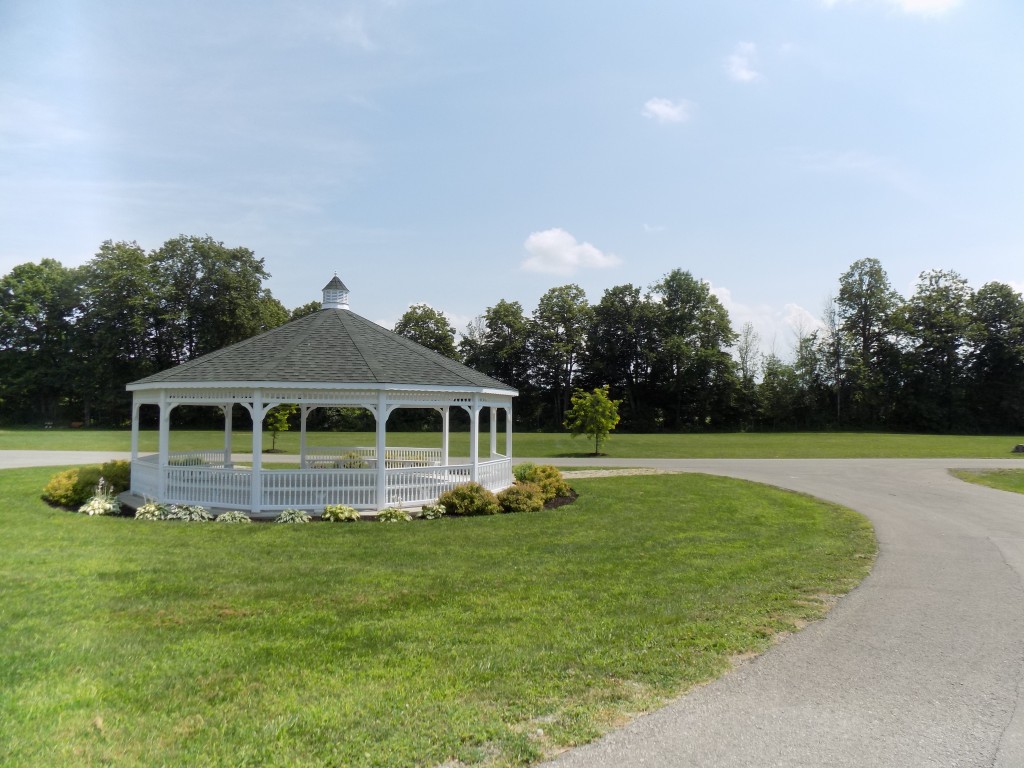Quebec community rejects establishment of Muslim cemetery
Residents of St. Apollinaire, Quebec, a small town near Quebec City, recently rejected an effort by the Muslim community of Quebec City to establish a cemetery in the town. It’s the latest example of small town tension between non-Muslims and Muslims. NCPR’s Brian Mann recently reported on protests and actions taken by far-right groups against the residents of Islamberg, a private Muslim community in the Catskills. 10 years ago, the council in the village of Herouxville in central Quebec passed a “code of conduct” aimed at Muslim residents. However, no Muslims lived in Herouxville.
The cemetery in St. Apollinaire was proposed by the Centre Culturel Islamique in Quebec City. That’s the same mosque where six men were shot and killed by a non-Muslim back in January 2017. The mosque needed cemetery space and did not have a location in Quebec City.
Opposition to the plan was strong. The mosque received hateful and threatening letters. In St. Apollinaire, the opposition was bureaucratic. Quebec law forces land planning decisions to go to a citizen referendum if enough people complain, and that’s what happened in St. Apollinaire. However, only the people who live around the proposed site get to vote. That meant that in St. Apollinaire, the decision over the Muslim cemetery was in the hands of 49 people. 35 of them voted, 19 marked their ballot against the cemetery, and 16 voted in favor.
The leadership at the Quebec City mosque, and the mayors of Quebec City and St. Apollinaire have stated their dissatisfaction with the result. They have speculated that fear and disinformation influenced the outcome.
A St. Apollinaire resident told the Montreal Gazette that all new cemeteries should be non-denominational. Opinions such as that reflect the largely non-religious reality of contemporary Quebec society, and the drift towards secularism in the western world in general. The fairness of the vote should also be questioned. It was held on a Sunday in July when many people were likely away on summer vacation.
The reality though is that many religious organizations want to have—and do have their own cemeteries. There are cemeteries for members of specific Christian, Jewish, and Muslim communities. Roman Catholic cemeteries are especially common in Quebec due to the religious heritage of the province. There are large Jewish cemeteries in Montreal and Ottawa, and even a small one near Cornwall. These cemeteries are owned and maintained by religious organizations or not-for-profit companies. And yes, there are non-religious cemeteries too. These are usually operated by municipal authorities and private companies.
Ottawa has a Muslim cemetery. Located near Manotick on a country road, it has an unassuming entrance. A paved lane winds through a forest and ends at a large open area of landscaped lawn that serves as the burial ground. The not-for-profit charity that owns and operates the cemetery obtained the 13-acre site in 2005. “We did not have any difficulties or obstacles such as in Quebec regarding the establishment of our cemetery,” said Chairman Abu Nazir.
Religious freedom is a constitutional right in Canada and the U.S. The St. Apollinaire cemetery controversy and tensions in other communities are testing the limits of those freedoms.









Freedom from religion is also a right. These things can get very tricky. People are getting tired of minorities of any ilk or persuasion constantly throwing their uniqueness in everyone’s face.